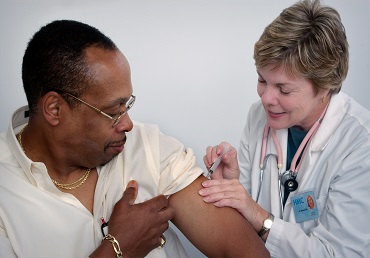
We all have heard of it, but what is Lyme disease? Why is Lyme disease dangerous to our health, and how can someone contract it? What are the symptoms of the disease? How are we able to cure it? These are all important questions, especially when we don’t hear about it frequently.
What is Lyme Disease?
Lyme disease is the most common vector-borne disease in the United States. A vector-borne disease is any agent that carries and transmits an infectious pathogen into another living organism. It is most commonly transmitted to humans by getting bitten by infected ticks. The ticks get the bacterium by biting infected animals. After one to four weeks of the initial bite, most people will experience some symptoms. About 70-80% of cases develop a rash called erythema migrans. Others receive flu-like symptoms, including fever, chills, headaches, fatigue, joint pain, or muscle aches. These symptoms may also lead to issues with mental health, including memory loss, difficulty thinking, and dizziness.
Why is Lyme disease a danger?
Why is Lyme disease a danger? Because of long-term effects that can hurt your mobility and cognitive skills while causing extreme lifestyle changes and emotional stress. If not treated, the infection can spread to the joints, heart, and even the nervous system. If the infection progresses to the chronic stage, symptoms continue for weeks, months, or even years after the initial bite. Untreated Lyme disease affects the joints by causing inflammation and making it difficult to move. For some, this can lead to arthritis as well. In the brain and rest of the body, it can lead to nerve problems that lead to failing mental health and muscle control.
Treatments & Safety Precautions
Although the disease is treatable with antibiotics, some people don’t fully recover after treatment. Those in the latter stages of the disease might require intravenous antibiotics. Doctors can diagnose the disease by a blood sample, spinal tap, or skin biopsy. Knowing this, how can we act ahead of schedule to help prevent being bitten by ticks? One way is to avoid wooded areas where ticks reside, especially during May to July. You can also use insect repellent that contains DEET or permethrin to help the insects run away. Shower after being outside and inspect yourself for ticks that might have latched on. If a tick has latched on, do NOT pull it off with your fingers or pinch it, as this may lead to more bacteria spreading into your blood. Instead, carefully have it removed by pinching it with tweezers as close to the skin as possible and slowly pulling it out of your skin. Once removed, disinfect and bandage. Dispose of the tick by placing it in alcohol as well.
If you or a loved one might have contracted Lyme disease, you must visit your primary care physician. Your insurance coverage should cover the standard antibiotic treatment, but you should talk to your insurance agent to confirm!
Got Medicare Questions?
We hope that this information on Lyme disease is useful to you.
Let us help you answer your questions so that you can get back to the activities that you enjoy the most.
Call (888) 446-9157, click here to get an INSTANT QUOTE, or leave a comment below!
See our other websites:
This article was updated on 11/21/24

